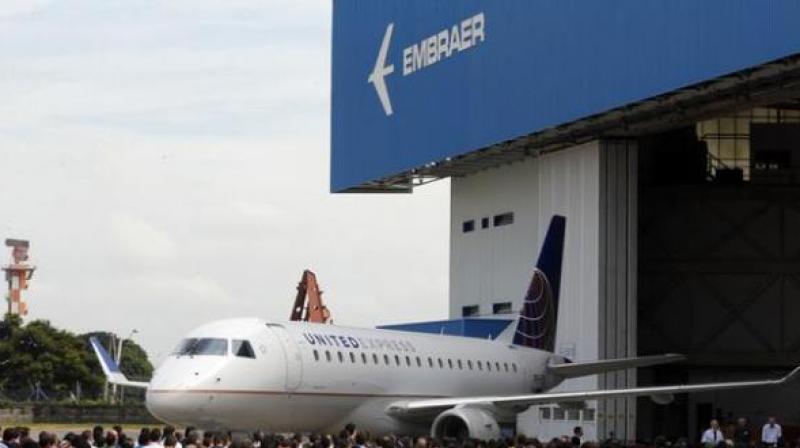Aircraft maker Embraer to settle US probe for $205 million

Washington: Brazilian aircraft maker Embraer has agreed to pay $205.5 million to US and Brazilian authorities to settle an investigation of alleged corruption in four countries, including India.
The Central Bureau of Investigation or CBI had filed a case last week to probe the $208-million aircraft deal signed with Embraer during the previous UPA rule.
The agency had accused NRI defence consultant Vipin Khanna of receiving nearly $6-million from Embaer, the world's third largest maker of commercial jets, to broker the deal.
The deal involved the purchase of three aircraft equipped with indigenous radars for Airborne Early Warning and Control Systems. The first aircraft was delivered in 2011 and the remaining two in 2013.
The company said in a public statement that a sweeping internal investigation led by Baker & McKenzie expanded beyond the scope of US authorities' initial inquiry, reviewing hundreds of thousands of documents and conducting more than 100 interviews.
In the process, Embraer said investigators found "the company was responsible for misdeeds in four transactions between 2007 and 2011". These included the sale of three surveillance aircraft to India for an undisclosed sum, among three other deals in Saudi Arabia, Dominican Republic and Mozambique.
Embraer said an internal probe, launched in 2010 after receiving a subpoena in the United States, found evidence of wrongdoing in deals with Saudi Arabia, India, Mozambique and the Dominican Republic in the five years through 2011.
The fine due to US and Brazilian authorities is in line with a $200 million provision Embraer made in July. The company said it is not party to a parallel Brazilian criminal investigation of certain individuals.
The planemaker's shares slipped 0.5 per cent in trading in Sao Paulo after news of the accord, which offers closure in a case that risked prosecution of the company under the US Foreign Corrupt Practices Act.
Embraer has replaced much of its senior management in recent years, reinforced compliance efforts and curtailed use of third-party sales representatives, who drew suspicion in deals under review.

